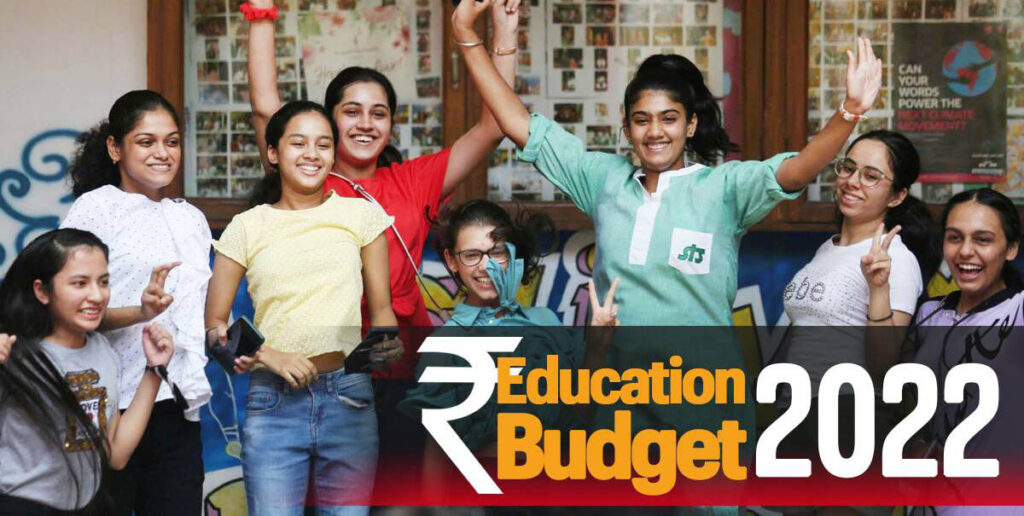Union Budget 2022 – Inputs from Education Experts

“The union budget has ushered in positive measures in the field of education which will give a boost to the sector especially in context of the pandemic. A robust education system is a necessity for any growing nation and this is all the more important when the country is aiming to normalize education. The focus on digitization, bridging the rural-urban gap, making online education available to all children are all measures that are welcome. Two years of education regression for school going children meant that we needed to double-up efforts to bridge education gaps. The budget 2022 for the education sector rightly focuses on upskilling and digital learning. The announcement of one class one channel and expansion to 200 channels under e-vidya will enable the reach of online education to a vast body of students where online education is still not widespread. The push to regional education is welcome as this will once again enable people in the rural areas to access quality education in their languages. Another welcome decision on digital university is that it will expand the reach of education to the masses as it will follow a hub and spoke model and emphasize the role of ICT in digital education.”
Ms. Shweta Sastri, Managing Director, Canadian International School, Bangalore
“Skill development in the country has been the need of hour and the Union Budget 2022 has rightly addressed it. The government’s interest to explore skilling programmes and industry partnerships to establish new skilling avenues, sustainability and employability is a good step. The proposed alignment of National Skill Qualification Framework with industry needs and launch of DESH-Stack eportal will encourage the government to offer skill development to every citizen remotely. It will perhaps benefit a large group of youths, self-owned businesses and women entrepreneurs, thereby addressing the core issue of unemployment and help tap into future ready jobs. The proposal to launch “Digital University” will certainly bring a positive change in the overall learning system, focused on support digital, easy and quality education.
Mr. Tom Joseph, Executive Director for Strategy & Development, ISDC (International Skill Development Corporation)
“Education is a unique sector where investment has multiple effects. The state of education is often a healthy predictor of the country’s overall development and well-being. While quality education holds the key to inclusive growth, education in India needs to be recognised as an equaliser especially in the context of the pandemic. It is also a crucial instrument that can bridge the socio-economic divide in our country. Establishing a Digital university and over 200 channels covering multiple regional languages under the One class, one TV channel’ program are two very innovative and path breaking initiatives which will enable students across the country to access quality education far and wide through the hub and spoke model. The development of quality e-content to empower and equip teachers with digital tools of teaching and facilitating better learning outcomes is a welcome measure to help children. With the challenges of the online learning arrangements, the government’s decision to enhance digital learning with E VIDYA will be a boost to the education sector. There was a necessity to train and build skills among children as this would make them employable and this has been addressed by focus on ITI’s which will undertake this task.“
Ms. Niru Agarwal, Trustee, Greenwood High International School
“Education and skill development sectors will be among the largest beneficiaries of these rails to tap the aspirations and ambitions of millions of career-focused citizens. The Government’s intention to set up a resilient education delivery mechanism for facilitating the delivery of quality education using digital platforms will unleash a host of opportunities for public-private collaboration. Add to that, the focus on democratising education and skill development with proactive investments into digital university, teacher training, digital inclusion, regional content and DESH-stack will result in unveiling a new opportunity landscape comprising of a new generation of digitally savvy quality education seekers. This will not only enable the edtechs and blended educators to collaborate; but most importantly, collectively expand the pool of new-age education seekers while narrowing down the learning curve.”
Dr. Raj Singh, Vice Chancellor- JAIN (Deemed-to-be University)



